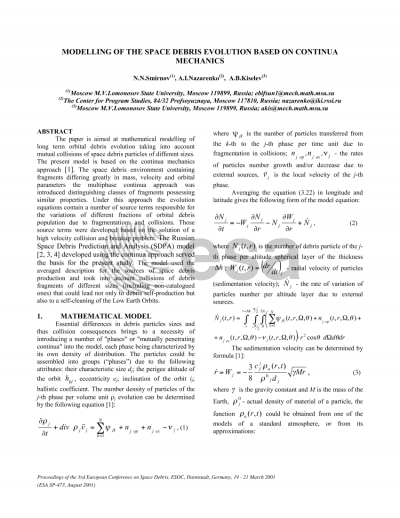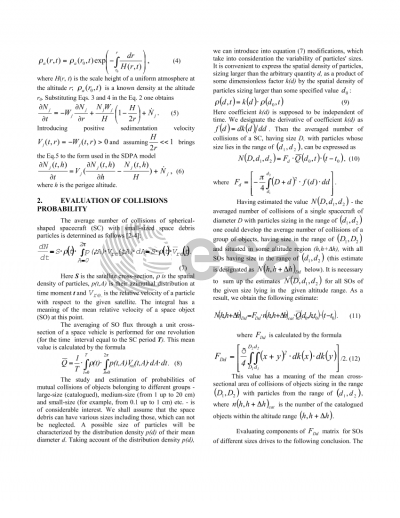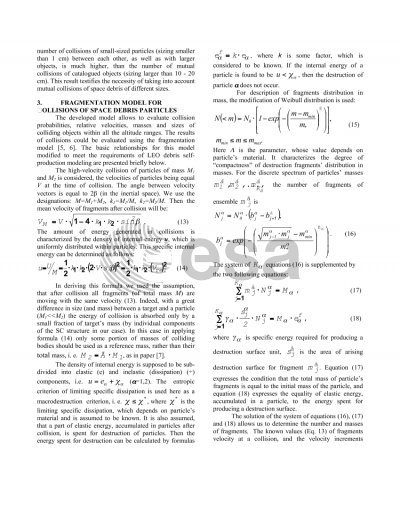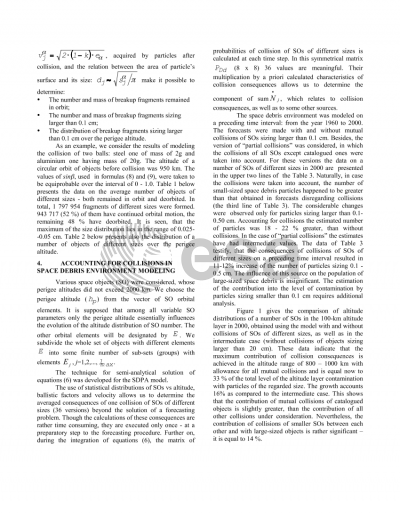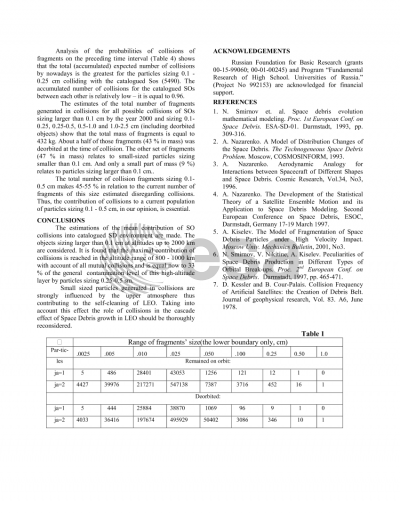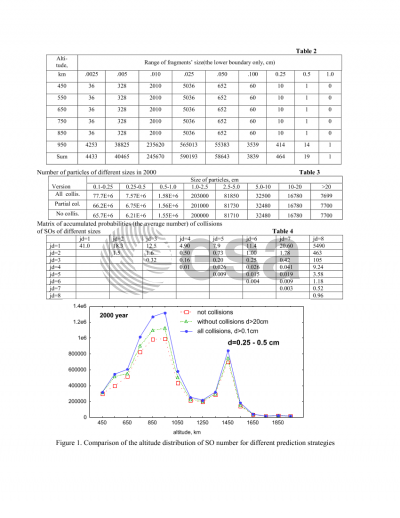Document details

Abstract
The paper is aimed at mathematical modelling of long term orbital debris evolution taking into account mutual collisions of space debris particles of different sizes. The present model is based on the continua mechanics approach. The space debris environment containing fragments differing greatly in mass, velocity and orbital parameters the multiphase continua approach was introduced distinguishing classes of fragments possessing similar properties. Under this approach the evolution equations contain a number of source terms responsible for the variations of different fractions of orbital debris population due to fragmentations and collisions. Those source terms were developed based on the solution of a high velocity collision and breakup problem. The Russian Space Debris Prediction and Analysis (SDPA) model developed using the continua approach served the basis for the present study. The model used the averaged description for the sources of space debris production and took into account collisions of debris fragments of different sizes (including non-catalogued ones) that could lead not only to debris self-production but also to a self-cleaning of the Low Earth Orbits.
Preview
